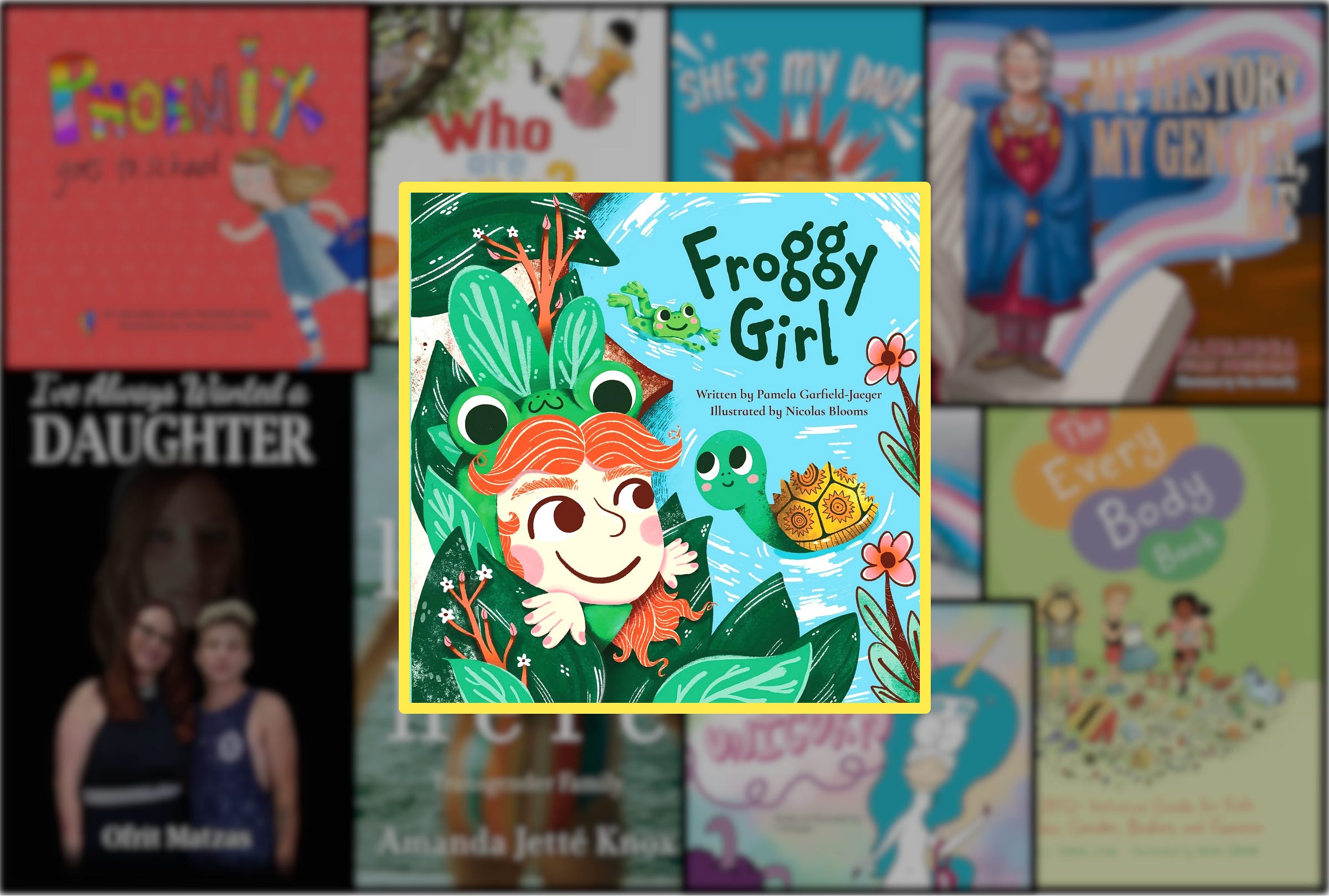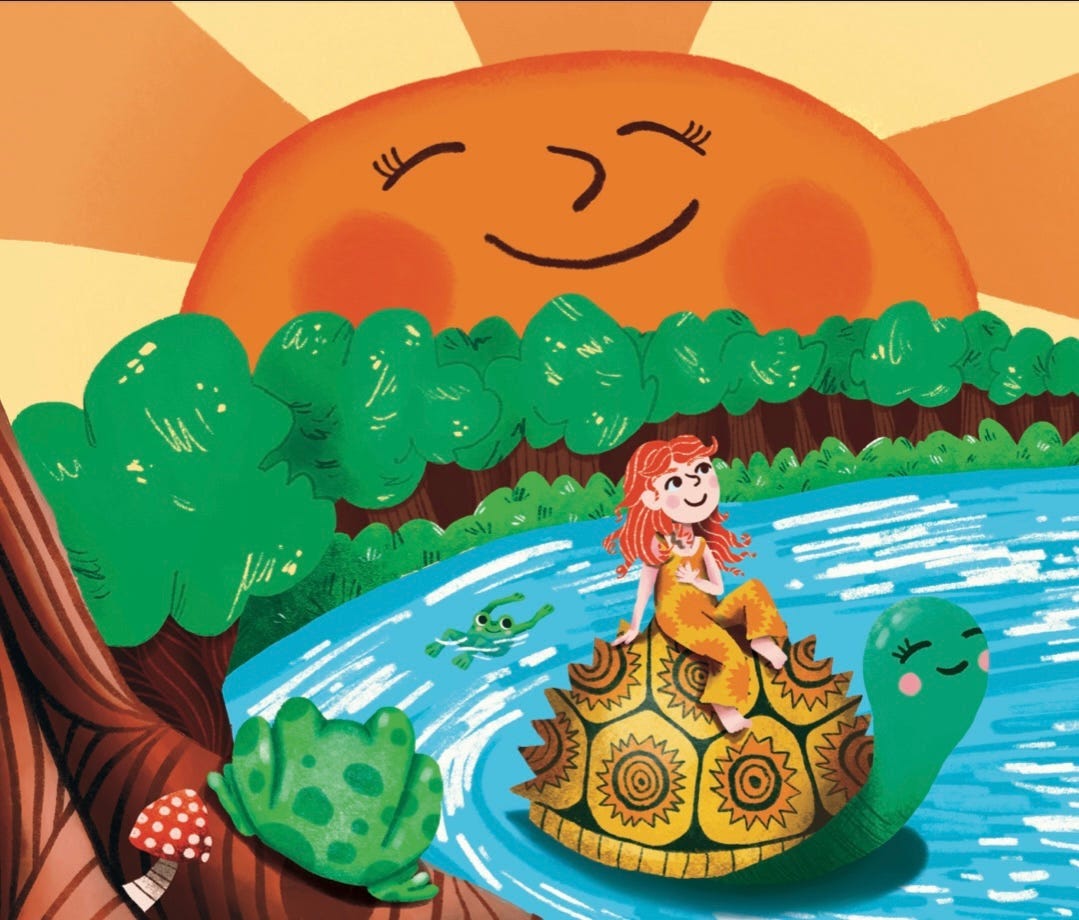‘Froggy Girl’—One Therapist’s Answer to the Gender Book Industry
Too many books teach kids they were born wrong; mine teaches them to love the body they’re in.
Reality’s Last Stand is a reader-supported publication. Please consider becoming a paying subscriber or making a one-time or recurring donation to show your support.
About the Author
Pamela Garfield-Jaeger is a licensed clinical social worker with over two decades of experience in the mental health field. She earned her Master of Social Work from New York University in 1999 and has worked in a wide range of settings, including schools, group homes, hospitals, and community-based organizations.
Today, Pamela is dedicated to educating parents and empowering mental health professionals to push back against the ideological capture of their field. She is the author of A Practical Response to Gender Distress, a hands-on guide for parents who choose not to affirm a false gender identity, and she offers additional support through her Parents' Guide to Mental Health—a resource designed to help families navigate the modern therapeutic landscape with confidence and clarity.
In recent years, a flood of children’s books has hit the shelves promoting gender ideology under the guise of kindness and self-discovery. Titles like I Am Jazz, Who Are You? The Kid’s Guide to Gender Identity, and Phoenix Goes to School are often read in classrooms and libraries across the country. These books are pitched as inclusive and affirming—helping children discover “who they truly are.” But the underlying message is troubling: if a child feels uncomfortable in their body or doesn't conform to stereotypical gender roles, they may actually be the opposite sex “on the inside.” And to live as their “authentic self,” they might need puberty blockers, cross-sex hormones, or even surgeries that irreversibly alter their bodies.
These stories are powerful tools of indoctrination. Activists know this, and recent research confirms it. A disturbing 2024 paper found that exposure to the story in the book I Am Jazz measurably reduced children’s beliefs “gender immutability” and increased their willingness to affirm peers who identify as transgender. In other words, these books are not helping kids “reflect” their supposedly innate transgender identities, they create it.
That’s why I felt compelled to offer something different.
My name is Pam, and I’m a licensed therapist with 25 years of experience working in schools, hospitals, counseling clinics, and private practice. For years, I’ve been speaking out against the medicalization of gender-distressed youth—a practice misleadingly called “gender-affirming care.” When a nerve injury forced me to step away from full-time clinical work in 2017, I began creating independent resources to help families navigate this confusing and often heartbreaking terrain. Last year, I published A Practical Response to Gender Distress: Tips and Tools for Families, and this year, I’ve written something for a much younger audience: a children’s book called Froggy Girl.
Froggy Girl is a rhyming picture book about a little girl who wishes she were a frog. Her parents, teacher, and friends are supportive, but despite their well-meaning encouragement, the girl feels increasingly isolated. She can’t do all the froggy things she imagined, and pretending doesn’t bring the joy she hoped for. Then she meets a wise turtle who gently helps her rediscover the beauty of being herself—a girl, just as she was born.
This isn’t a story about gender. It’s a story about self-acceptance.
Froggy Girl is illustrated by Nicholas Blooms, a professional children’s book artist and detransitioner whose personal journey brings emotional depth and authenticity to every page. The artwork is bright, whimsical, and full of life. But most importantly, the book delivers a message we rarely hear today: it’s okay to feel different, and you don’t need to change your body to be whole.
I wrote this book because I saw the gap—and the damage. Too many books are telling kids that being uncomfortable, sad, or anxious means they were born wrong. Some even suggest that kids who accept themselves as they are are boring or invisible. This is not just untrue; it’s dangerous.
When I searched Amazon for “children’s LGBT books,” here are some titles that appeared: Phoenix Goes to School: A Story to Support Transgender and Gender Diverse Children; Who Are You? The Kid’s Guide to Gender Identity; Eugene the Unicorn: A Kid’s Book to Help Start LGBTQ Inclusive Conversations; The Every Body Book: The LGBTQ+ Inclusive Guide for Kids About Sex, Gender, Bodies, and Families; My History, My Gender, Me; Love Lives Here: A Story of Thriving in a Transgender Family; I’ve Always Wanted a Daughter: A Memoir of Parenting a Transgender Child; She’s My Dad! A Story for Children Who Have a Transgender Parent or Relative; My Awesome Brother: A Children’s Book About Transgender Acceptance; and Queerly Autistic: The Ultimate Guide for LGBTQIA+ Teens on the Spectrum. The list goes on and on.
I don’t have a marketing team or major publisher like Scholastic behind me, which recently launched its “Read With Pride” campaign in 2024 promoting LGBT-themed books in schools nationwide. I’m just one therapist, independently publishing books that reflect what I’ve learned from working with families for decades: children thrive when they are gently guided toward accepting reality, not encouraged to escape it.
Shortly after I launched the Froggy Girl website, I received an incredible message from a young woman who had detransitioned after years of identifying as a boy. She told me she had PTSD, bipolar disorder, and autism—conditions that made her vulnerable to believing she was “born in the wrong body.” As a child, she said she always hated being a girl and felt deeply uncomfortable with the attention she received when she dressed up for church. She loved math, excelled in school, and longed to be noticed for her talents rather than her appearance. Eventually, her therapist and other influential adults in her life convinced her that her discomfort meant she was really a boy trapped in a girl’s body. Unfortunately, it took her seven years to realize that wasn’t true. Now 22, she told me she wished a book like Froggy Girl had existed when she was younger. “I don’t reach out to people online often,” she wrote, “but I felt compelled to write to you after reading about this [Froggy Girl]. I really wonder how things would have gone if I had read more books like this when I was a child.”
I share her story not to claim that Froggy Girl is a magic solution, but to show what’s possible when we offer children stories rooted in love, clarity, and truth. Kids don’t need glitter-covered slogans or identity flags to find meaning. They need to know they’re valuable just as they are—that they don’t have to change their bodies to feel at home in them.
If you believe, as I do, that no child is born in the wrong body—if you want to gently counter the tide of confusion and affirmation-only messaging—I hope you’ll help me share Froggy Girl. It was launched yesterday (July 15, 2025) and is currently available through all major online retailers. You can find more information at www.froggygirlbook.com.
Donate a copy to a school or library. Give it as a gift to a young family. And if you run a podcast or a show—big or small—I’d be honored to join you to talk more about why stories like this matter.
We can’t control every message children hear, but we can make sure they hear the truth at least once.
You made it to the end! Please consider upgrading to a paid subscription or making a recurring or one-time donation below to show your support. Reality’s Last Stand is a reader-supported publication, and your help is greatly appreciated.














Children are being indoctrinated into the cult at an early age. ALL OF THEM should be banned from school libraries, just like any other cult material. If parents want to buy books like "The Genderbread Person" they should buy them from a bookstore.
Thank you!